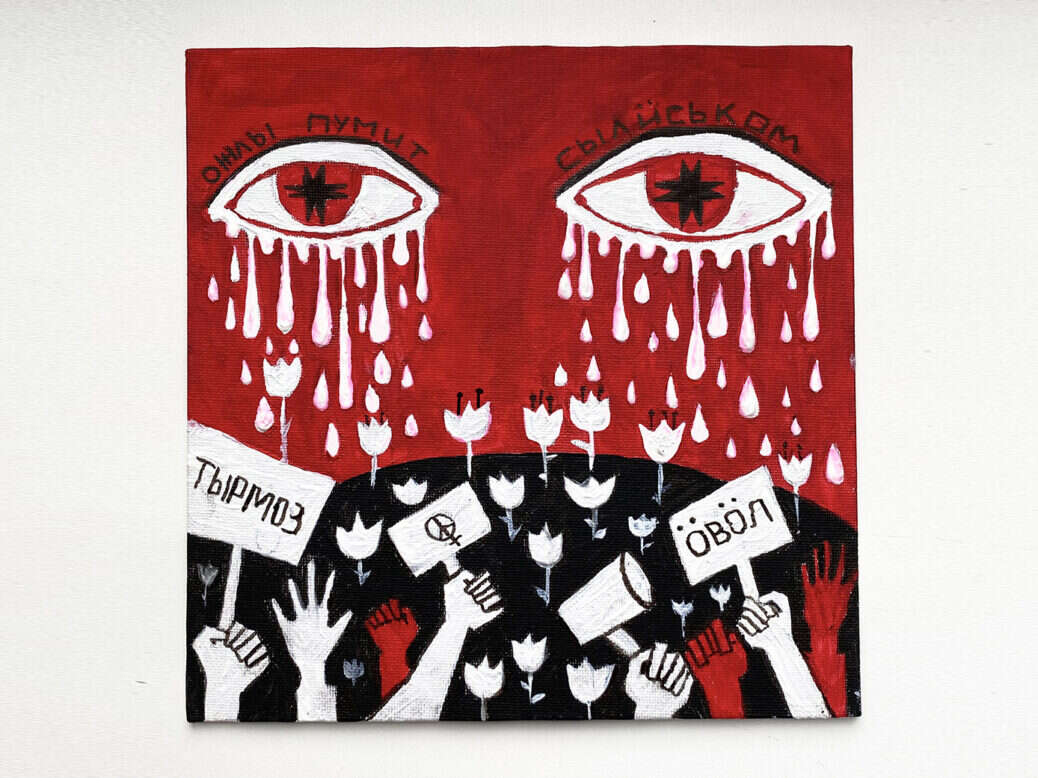Censored in Russian, anti-war activists turn to indigenous languages
World
Europe
20 April 2022
Ethnic minority activists see similarities between the invasion of Ukraine and Russian suppression of their own cultures.
By Katie Marie Davies
When the artist Polina Osipova saw photos of civilian bodies strewn across the street in the Ukrainian village of Bucha, she found she had no Russian words left to describe the atrocity. Instead, she sat and wrote an anti-war message in her mother tongue: Chuvash.
“[Chuvash] is much freer now than Russian,” says Osipova, who grew up in a village in central Russia before moving to St Petersburg. All of her family are Chuvash, an ethnic group with its own distinct culture and roots to the west of the Volga river. It also has its own language: one of more than 135 spoken among the almost 200 distinct nationalities that live across Russia’s vast territory. According to the 2010 census, 81 per cent of Russia’s population, or roughly 111 million people, are white, Slavic Russian. The remaining 19 per cent belong to ethnic minority groups, including indigenous peoples of colour from Asia and the far north.
“I believe that saying ‘no to war’ in your own native language reinforces the meaning of those words,” Osipova says. “Russian propaganda is doing its best to show that people who oppose the war are in the minority. As an indigenous person, in my own native language, I am trying to show that to be false.”
Osipova is not alone in turning to Russia’s long-overlooked minority languages to express her rage. The war in Ukraine has left many Russians inconsolable, but a violent crackdown on civil rights since the invasion began means that expressing opposition is hazardous. Early on in the conflict the Russian government announced that anyone who referred to the invasion as a “war” — rather than using the Kremlin’s preferred term of “special operation” — risked a jail term of up to 15 years. A number of Russians have been detained or fined under hastily passed laws designed to prosecute those who “discredit” Russia’s armed forces.
https://www.newstatesman.com/world/europe/2022/04/censored-in-russian-anti-war-activists-turn-to-indigenous-languages

( Excellent article. )
